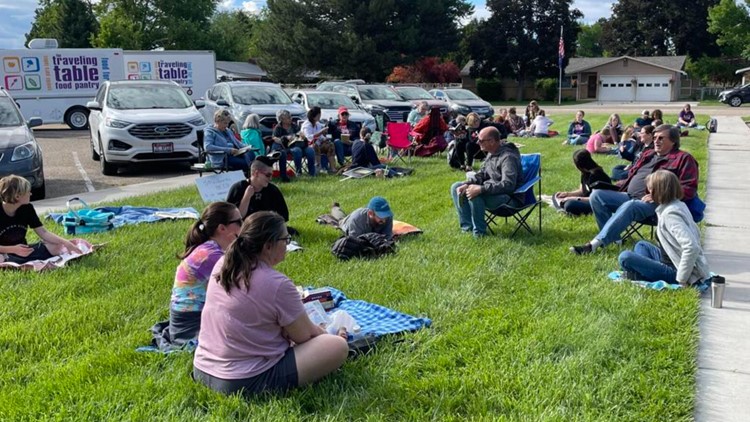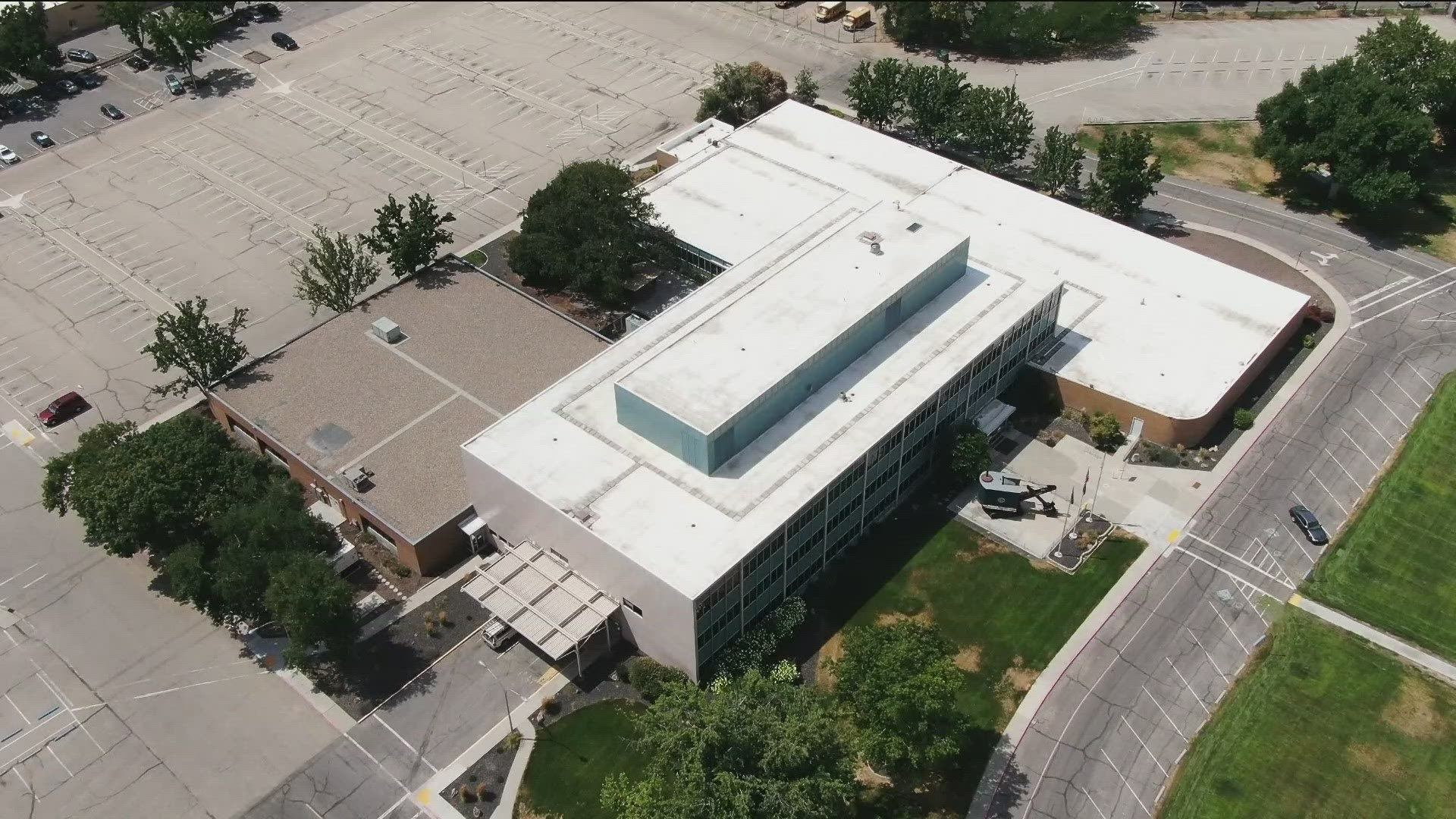NAMPA, Idaho — This article originally appeared in the Idaho Press.
Before Michelle Tanberg retired from teaching in the Nampa School District, she decided to “go out with a bang” — joining a committee to review challenged books in the district.
For 17 years, Tanberg taught English in the Nampa teen parents program, and most recently at the Nampa Online Virtual Academy, or NOVA, she said. In the teen program, most students would have “one degree of separation or less with all the problems that are mentioned in these scary, scary, dirty banned books,” Tanberg said, referring to concerns that have been raised about the more than 20 books marked for removal from the district’s library shelves last month.
Tanberg shared her thoughts at a read-in organized by the Nampa Banned Books Fan Club, which took place Monday evening on the lawn of the school district headquarters.
Tanberg said it can be useful for students to read books that discuss difficult circumstances that they have experienced first-hand, or heard about second-hand.
“I think it’s very empowering for people in those situations to see, ‘Oh. They told. Maybe I should tell,’ or, ‘This happened to them. Here’s what they did,’” she said.
About 30 people gathered at the beginning of Monday’s event.
Participants were encouraged to bring a picnic dinner, and could spend an evening out with family and friends reading books, said Lance McGrath, an academic librarian at the College of Idaho and founder of the Nampa Banned Books Fan Club, by phone ahead of the event.
Jacqueline Martinko, who teaches at the NOVA, had brought several books to the read-in, including “Kite Runner,” by Khaled Hosseini, a “heartbreaking” story about friendship between two boys amidst “the tragic sweep of history” in Afghanistan, according to Amazon.com.
That book, along with others teachers see educational value in are often “the ones that ELs kind of identify with because they’ve got some of that trauma in the background as well,” Martinko said, referring to students who are English learners.
McGrath said the Nampa Banned Books Fan Club is in the early stages of defining its role in the community.
“This is a fledgling effort,” McGrath said of the group. He formed the group following the Nampa School Board’s May vote. Over the past month, he has been reached out to by people interested in reading the books, looking for book recommendations, and teachers and librarians looking for advice on how to support student reading, he said. Students have reached out to those teachers and librarians asking for advice on forming book clubs, he said.
McGrath has made connections with people at Rediscovered Bookshop, which organized a book distribution event in Nampa earlier this month, as well as with reading advocacy groups from across the country who have reached out to provide input and moral support, he said.
“We’re all about supporting reading,” McGrath said. “Whatever people are wanting to get into and read … (it’s a) good idea to consider different viewpoints and ideas. Whether it’s fiction, non-fiction, keep reading.”
McGrath called the board’s initial decision to remove the books “reactive” and “not well thought-out.”
“Students do have first amendment rights, even minors, and public school officials have to be cognizant of first amendment rights of minors when they are making decisions about library resources, about curricular decisions, and materials that go in the library, like books,” he said.
A student’s first amendment rights include “the right to receive information,” according to a document produced by the American Library Association entitled “Do Minors Have First Amendment Rights in Schools?” One result of this is that “attempts to censor access to materials in the school library will not be permitted unless the restricted materials can be demonstrated to be educationally unsuitable,” the document says.
The Supreme Court heard the case Board of Education v. Pico after a school “attempted to remove” library books, the document said. The court found that though removing the books had not violated the students’ right to expression, it was not appropriate to remove the books because, “the right to receive ideas is a necessary predicate to the recipients’ meaningful exercise of his own rights of speech, press, and political freedom.”
That said, school boards have a right to remove books if they can “objectively” demonstrate that the material is “educationally unsuitable,” as opposed to basing the decision on “subjective disapproval or disagreement with the content,” the document says.
Rediscovered Bookshop was also at the event distributing books.
The fan club will hold another read-in this Thursday at 6 p.m., ahead of the board’s Thursday evening meeting.
This article originally appeared in the Idaho Press, read more on IdahoPress.com.
Watch more Local News:
See the latest news from around the Treasure Valley and the Gem State in our YouTube playlist:



